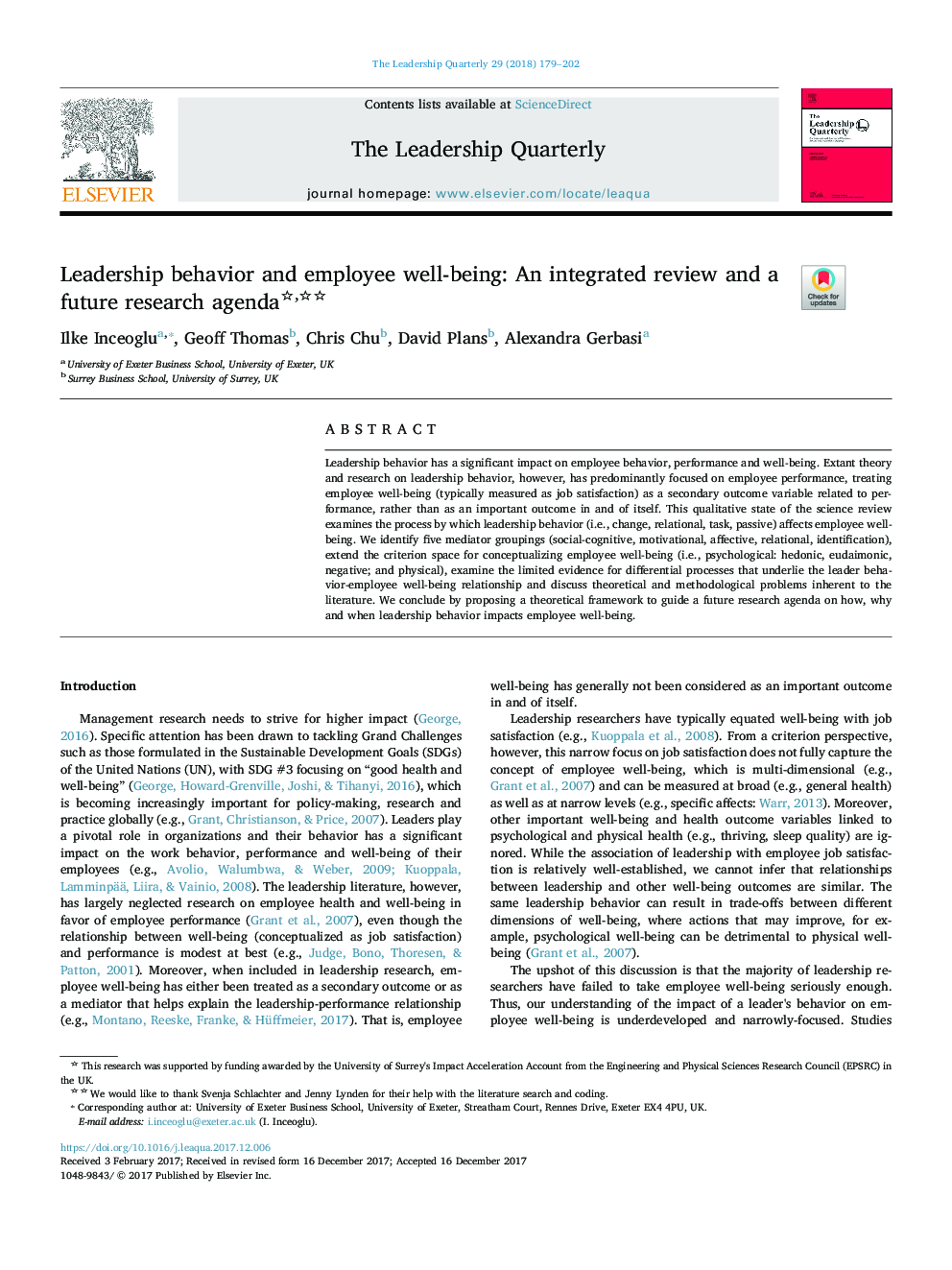| Article ID | Journal | Published Year | Pages | File Type |
|---|---|---|---|---|
| 7247876 | The Leadership Quarterly | 2018 | 24 Pages |
Abstract
Leadership behavior has a significant impact on employee behavior, performance and well-being. Extant theory and research on leadership behavior, however, has predominantly focused on employee performance, treating employee well-being (typically measured as job satisfaction) as a secondary outcome variable related to performance, rather than as an important outcome in and of itself. This qualitative state of the science review examines the process by which leadership behavior (i.e., change, relational, task, passive) affects employee well-being. We identify five mediator groupings (social-cognitive, motivational, affective, relational, identification), extend the criterion space for conceptualizing employee well-being (i.e., psychological: hedonic, eudaimonic, negative; and physical), examine the limited evidence for differential processes that underlie the leader behavior-employee well-being relationship and discuss theoretical and methodological problems inherent to the literature. We conclude by proposing a theoretical framework to guide a future research agenda on how, why and when leadership behavior impacts employee well-being.
Related Topics
Social Sciences and Humanities
Business, Management and Accounting
Business and International Management
Authors
Ilke Inceoglu, Geoff Thomas, Chris Chu, David Plans, Alexandra Gerbasi,
